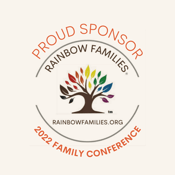
It is becoming more common for women who are older to decide they want to have a baby. In fact, many women are under the impression that once you reach 40, all bets are off for having a baby. Contrary to popular belief, this is not necessarily the case for many women. Technically, it is possible for women to get pregnant at any point up until reaching menopause, assuming that they are healthy enough to do so.
However, one of the biggest factors that contribute to a lower success rate for pregnancy later in life is age. This is particularly true with eggs. With age, the quality and quantity of women’s eggs decrease, and the decline becomes more significant as women reach their 40s.
Let's explore how the egg donation process, relations between egg donation and recipient age, and medical requirements for recipients, could ultimately revitalize your hopes for conception and pregnancy later in life.
Choosing egg donation as an alternative to using your own eggs can offer a chance for women who want to get pregnant in their mid-40s or even late-40s, especially those that may experience issues with their ovarian reserves later in life. The egg donation process can also offer a solution for women who are at a younger age but experience medical issues that affect fertility as well.
Egg donation can benefit women who experience medical issues below:
If you are considering becoming a parent through egg donation via a third party, our team is here to help you. The first step is to find your ideal egg donor. We will assist you in selecting the egg donor that best meets your requirements and needs.
Once you are officially matched with an egg donor, the egg donor will go to your IVF clinic for an in-person medical screening appointment with your IVF physician. We will also connect you with an attorney that specializes in reproductive law to initiate the legal contract. After legal agreements are in place, your egg donor will begin medications used for ovarian stimulation to the egg retrieval procedure. Once the egg retrieval procedure has been performed, the embryos will be fertilized, cultured, and frozen for later use. Your IVF physician will then make the treatment plan for your frozen embryo transfer cycle when you are ready.
The good news is that the uterus does not age at the same rate as a woman's eggs typically do. Many healthy women can carry successful pregnancies using donor eggs well into their late 40s. Successful pregnancy and delivery can be more readily achieved in women of advanced maternal age using donor eggs. IVF with donor egg treatment and PGT testing technology can also increase a woman’s chances of getting pregnant later in life. As women age, the egg quantity and optimal quality might not be available for natural pregnancy anymore. However, this does not necessarily mean that a woman is incapable of carrying her own child.
It is important to understand that for the best interest of the health and safety of the mother and baby, it is strongly recommended that the recipient be no older than 50 years of age at the time of embryo transfer. It is essential to understand that there is a reduction in implantation rates and much higher miscarriage rates in donor egg recipients 45-50 years of age. Studies show that pregnancy rates were the highest in the 30-39 age group and lowest in the 50+-year-old age group.
In order to determine if you are a good candidate to be the recipient of the embryos, there are tests that you can do to evaluate uterine health and rule out uterine issues such as polyps or pelvic infections. Your IVF physician may order a panel of tests for you including a PAP smear, a lining ultrasound, and/or blood works.
When it comes to a FET (frozen embryo transfer) cycle, each case can vary due to several factors. In a typical scenario, the embryo transfer procedure usually occurs between days 19 and 21 of the patient’s menstrual cycle. This is followed by a pregnancy blood test approximately 10 days post-implantation.
Hatch Fertility is the leading egg donation & surrogacy agency in the United States. We have the experience and passion for every family-building journey. Our specialists will help you through every step of the journey from identifying an egg donor to completing the egg donation process. We work with top IVF clinics all over the world including our in-house IVF clinic, Pacific Fertility Center at Los Angeles (PFCLA), one of the top fertility clinics in the world. Our egg donors will go through comprehensive screenings at PFCLA and the IVF specialists work with recipients for personalized treatment plans and successful outcomes. Contact us today to learn more about the egg donation process.
These Stories on Egg Donation - For Intended Parents

.png?width=150&height=150&name=Open-Door-Badge_Beyond-Inclusion-LGBTQ-101%20(1).png)

